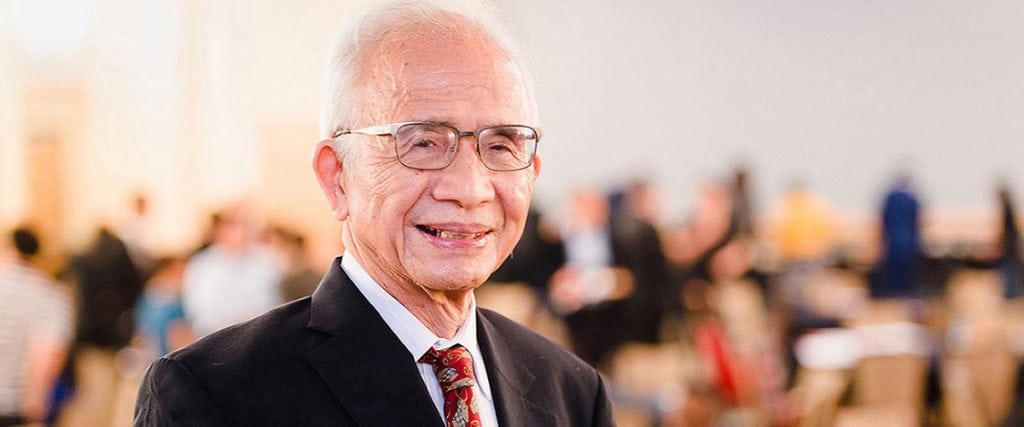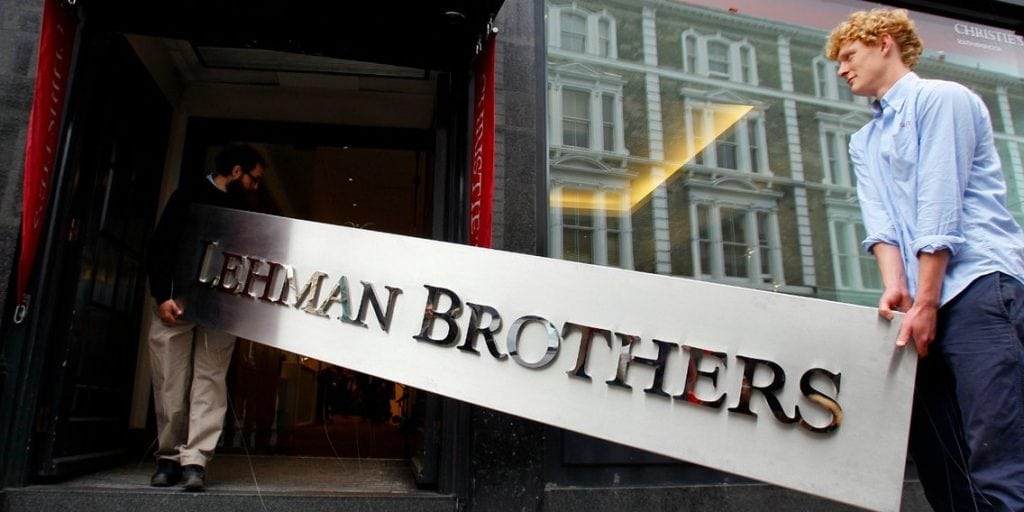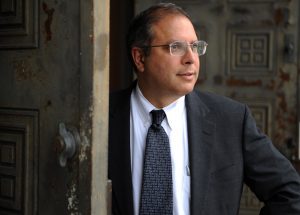Do Business Schools Have a Real Answer for Climate Change?

If relentless growth exists at odds with strategies dealing with climate change, how can business schools change the approach in a new decade?
Continue reading…MBA in the UK: Is London or Manchester Right For You?

With close to 9 million residents, London has the fifth-largest metropolitan economy in the world and is responsible for producing 22 percent of total GDP in the United Kingdom.
Continue reading…3D Printing Research, Success Without Passion, and More – New York News

Let’s explore some of the most interesting stories that have emerged from New York business schools this week.
Award-Winning Paper Explores How Designers Innovate in 3D Printing Communities – Stevens Institute of Technology SOB News
In a new paper from Gaurav Sabnis, Stevens Institute of Technology School of Business Assistant Professor of Marketing, Associate Dean of Research Dr. Jeffrey Nickerson, and the University of Navarra’s Dr. Harris Kyriakou “examines knowledge reuse in 3D printing communities [where] makers often iterate on designs created by other users to create refined products.”
According to the Stevens Institute of Technology SOB News article, “the professors looked at frequently reused designs and found a few clear signals in what helps designs get shared—from a designer’s level of experience, to the amount of information she included about her designs.”
The trio’s research is among the first to properly survey 3D printing communities and it could have only happened in the interdisciplinary incubator that is Stevens. Dr. Sabnis writes, “Stevens has a great culture that leads to more interdisciplinary research. I’m excited to do the kinds of research that creates real-world solutions for businesses in the digital age.”
You can read more about the 3D printing research from Stevens here.
Reviving Grit: Columbia Business School Study Finds That In Pursuit of Success, Dedication Falls Short Without Passion – Columbia Business School News
In a new PNAS study, Columbia Business School and Frankfurt School of Finance & Management researchers found that grit “without the clear sense of direction that passion provides does not propel people forward.”
Columbia Professor and co-author Adam Galinsky writes, “We were not surprised to find that dogged dedication to an objective – without a true passion for the goal – is mere drudgery.”
“But until now, research on grit failed to factor in the propulsive force that animated grit’s perseverance. By properly incorporating passion into the grit equation, we now have evidence that people who are passionate for their goal and persevere towards it will reach higher heights.”
You can find Why Grit Requires Perseverance and Passion to Positively Predict Performance here, and discover more fro the Columbia Business School News article here.
Where Professors Share Knowledge on Issues in Finance, Economics and Accounting – Rutgers Business School News
The Livingston Student Center recently hosted the annual Conference on Pacific Basin Finance, Economics, Accounting, and Management, which was founded by Rutgers Business School Distinguished Professor of Finance and Economics Cheng-Few Lee at the business school in 1992.

Rutgers Business School Distinguished Professor of Finance and Economics Cheng-Few Lee / Photo via business.rutgers.edu
The conference assembles “finance professors from around the world” to absorb “research on a variety of issues, from financial applications of parallel processing to the ethics of cryptocurrency.”
According to the Rutgers Business School News article, “Many of the conference speakers were Professor Lee’s former colleagues or students, including professor Yong Shi, who is one of 13 advisors to China’s premier, [and] delivered a keynote address on big Data Mining and Knowledge Management.”
You can read more about the event here.
Columbia Revisits The Great Recession, and More – New York News

Let’s explore some of the most interesting stories that have emerged from New York business schools this week.
Showing Discipline with Kindness, Compassion to Employees Results in Better Job Performance, Research Shows – Binghamton University School of Management
New Binghamton SOM research reveals that leaders who show “no compassion to employees doesn’t bode well for their job performance, while showing compassion motivated them to be better workers.”
Binghamton Assistant Professor of Management Chou-Yu Tsai and his coauthors “surveyed nearly 1,000 members of the Taiwanese military and almost 200 adults working full-time in the United States” to review the subordinate performance that sprang from Authoritarianism-dominant, Benevolence-dominant, and Classical paternalistic leadership styles.
Tsai explains, “Being benevolent is important because it can change the perception your followers have of you. If you feel that your leader or boss actually cares about you, you may feel more serious about the work you do for them.”
“Subordinates and employees are not tools or machines that you can just use. They are human beings and deserve to be treated with respect. Make sure you are focusing on their well-being and helping them find the support they need, while also being clear about what your expectations and priorities are. This is a work-based version of ‘tough love’ often seen in parent-child relationships.”
You can watch a video on the research below.
A Food Scientist Pursuing a Rutgers MBA Creates Perfect Life Nutrition – Rutgers Business School News
Perfect Life Nutrition founder and current Rutgers Business School MBA Juan Salinas talks about how his path to food science led him to take home the $20,000 top prize at this year’s Rutgers Business Plan Competition.
A native of Honduras, Salinas worked at Nabisco, Cadbury, and Power Bar, where he “combined his expertise in food science with knowledge he gained in sports nutrition working on a master’s offered by the International Olympic Committee.”
He left the corporate ringer in 2015 to start Perfect Life Nutrition and its flagship P-nuff Crunch Baked Peanut Puff, a plant-based protein snack that satisfied Salinas’ desire to make something “tasty and nutritious.”
According to the Rutgers Business School News, Perfect Life Nutrition has since “pushed out two new versions of P-nuff Crunch, both are peanut-based but one is cinnamon-dusted and the other is flavored with cocoa.”
You can read the rest of Salinas’ article with Rutgers Business School here.
Dodd-Frank a Flop: Columbia Business School Study Recommends Fundamental Reforms for Landmark Financial Regulation – Columbia Business School
A decade after the Great Recession hit, new Journal of Applied Corporate Finance research from CBS Professor Charles Calomiris unpacks “numerous flaws in post-crisis financial regulations and proposes modifying or eliminating a number of recently approved financial reforms, including pieces of Dodd-Frank and the Volcker Rule.”

Lehman Brothers’ collapse in 2008 was among the first major signs of massive economic distress – Photo via Oli Scarff/Getty Images
In a recent interview with the school, Calomiris explains, “The Great Recession created a rush in Washington to establish guardrails for the financial industry. But good intentions, expanded powers, and new mandates do not necessarily lead to smart policy decisions.”
“Ten years later, it’s clear that the Dodd-Frank Act and further regulations are failing to curb risky behavior while obstructing economic growth. We can do much better than these costly, unsustainable regulations that will do little to prevent a repeat of the financial crisis.”
Calomiris proposes nearly two-dozen reforms to current regulations, including:
- “Linking financial regulation directly to the performance of the financial sector and demonstrate that regulatory costs are justified by measurable benefits.
- “Restoring the role of laws and formal rule-making in financial regulation and end the discretionary authority of politicized actors like the FSOC and the Consumer Financial Protection Bureau.”
- “Holding regulators accountable to the public by requiring transparent regulatory standards.”
Has Financial Regulations Been a Flop? (or How to Reform Dodd-Frank) can be found here.
Happiness, Net Worth, and Materialism – Chicago News

Let’s explore some of the most interesting stories that have emerged from Chicago business schools this week.
How To Be Happy Without Earning More – Booth Business Blog
The University of Chicago Booth School of Business recently published a lengthy profile that explores “hedonomics,” a term that professor Christopher K. Hsee appropriated to use as a “counterpart” to traditional economics, which studies how “to extract more happiness from the existing stuff.”
Hsee explains, “Our ancestors had to work to accumulate enough to survive. But now productivity is so high, we don’t need to work so hard for survival.”
In 2008, Hsee and his Booth compatriot Reid Hastie “redefined” the term from its original meaning as the “study of ways to interact with machines.” The article explains that “their version of hedonomics is premised on the idea that people don’t need more resources to be happier; they need to use existing resources differently,” such as a child who grows weary of wooden blocks they initially enjoyed. “Hedonomics suggests the child doesn’t need more blocks to be happy; she needs to change how she plays with those blocks.”
One component of hedonomics is the “hedonic treadmill,” coined by Northwestern’s Philip Brickman and Lehigh’s Donald T. Campbell, which refers to the psychoeconomic effect of what happens when it “takes more and more things to make people happy.”
According to the article, “The hedonic treadmill fires up because people misunderstand what will actually make them happy. [In fact], people gain more happiness when they satisfy their inherent rather than learned preferences—needs rather than wants.”
Hsee’s research could be useful in developing countries where the middle class continues to grow and more developed countries where the middle class has begun to diminish, particularly with the prospect of millions of people becoming idle due to automation looming in the background.
“You can make idle people happy by giving them a reason to ‘play with the existing blocks’ without accumulating more blocks.”
You can read more about hedonomics here.
Aric Rindfleisch’s Research Delves Into Reducing Materialism in Younger Consumers – Gies School of Business Blog
University of Illinois Gies College of Business Professor of Business Administration and Marketing Aric Rindfleisch, who researches consumer values, recently published a paper in the Journal of Positive Psychology, which presents “strategies for reducing materialism in younger consumers.”
According to the Gies School of Business Blog, “The impact of gratitude on adolescent materialism and generosity” has led to two studies that offered “fostering gratitude” as an effective strategy to combat materialism in adolescents.

Aric Rindfleisch, Gies College of Business Professor of Business Administration and Marketing
“In the first study, children and adolescents with a grateful disposition were less materialistic.” The second study found that ‘gratitude journals’ “significantly reduced materialism and also attenuated materialism’s negative effect on generosity.”
You can read more about Rindfleisch’s research here.
New Study Contradicts Notion That Electronic Health Records are Driving Doctors to Quit – Mendoza Ideas & News
Notre Dame Mendoza College of Business Professor of IT, Analytics, and Operations Corey Angst has coauthored a new study due for publication in Information Systems Research, which finds that electronic health records (EHRs) have “increased doctors’ tenure at hospitals.” This discovery stands in direct opposition to certain prominent articles, which assert that EHRs have caused doctors to retire.
“The Mobility of High Status Professionals after the Implementation of Enterprise Information Systems, which was coauthored with the University of Minnesota’s Brad Greenwood and McGill’s Kartik Ganju, examines how EHRs affect the “decision of physicians to continue practicing at their current hospital.”
Angst says, “Results suggest that when EHRs create benefits for doctors, such as reducing their workloads or preventing costly errors, their duration of practice increases significantly.”
“However, when technologies force doctors to change their routines, there is an obvious exodus, though it’s more pronounced with older doctors, especially specialists, and those who have been disrupted in the past by IT implementations,” he adds.
Angst notes that “doctors won’t be scared off as hospitals continue adopting new technologies — as long as they’re not too disruptive to routines.”
You can read more about the research here.
Chicago Booth Professor Anil Kashyap Honored By Japanese Government

Last month, University of Chicago Booth School of Business professor Anil Kashyap received the Order of the Rising Sun, Gold Rays with Neck Ribbon award by the Japanese government. This prestigious award honors the renowned economist’s distinguished achievements and contributions to Japan.
Kashyap was honored for the significant role he played in promoting and disseminating high quality research on the Japanese financial system and economic policies. According to the school, he coordinated conferences bringing together Japanese and American researchers in partnership with the Economic and Social Research Institute, the think-tank under the Cabinet Office of Japan.
“It has been an honor and a privilege to work with the Cabinet office on these conferences. They have generated many good research papers, forged some collaborations and hopefully have helped with the policy process,” Kashyap said after receiving the award.
The Order of the Rising Sun was originally established in 1875 by Japanese Emperor Meiji as the first national decoration awarded by the Japanese government. However, a modern version has been awarded to non-Japanese recipients since 1981.
Today the award honors individuals who have made significant contributions to international relations, promotion of Japanese culture, advancements in their field, development in welfare, as well as preservation of the environment. Kashyap was among 149 foreign recipients of the award this year.

Anil Kashyap/Photo via Chicago Booth
Prior to joining the Chicago Booth faculty in 1991, Kashyap spent three years as an economist for the Board of Governors for the Federal Reserve System. In addition to his exploits in Japan, he is on the Board of Directors of the Bank of Italy’s Einuadi Institute of Economics and Finance, is a member of the Squam Lake Group, and serves on the International Monetary Fund’s Advisory Group on the development of a macro-prudential policy framework. Since 2016 he has been an external member of the Bank of England’s Financial Policy Committee.
Kashyap is currently the Edward Eagle Brown Professor of Economics and Finance at Chicago Booth. His research has won him numerous other awards, including a Sloan Research Fellowship, the Nikkei Prize for Excellent Books in Economic Sciences, and a Senior Houblon-Norman Fellowship from the Bank of England.
Kashyap also currently works as a consultant for the Federal Reserve Bank of Chicago, and serves as a member of the Economic Advisory Panel of the Federal Reserve Bank of New York, and as a Research Associate for the National Bureau of Economic Research.
